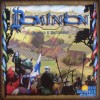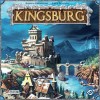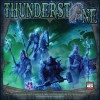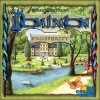

ManOfSorrows
gamer level 3
901 xp
901 xp
followers
27
27
Use my invite URL to register (this will give me kudos)
https://boardgaming.com/register/?invited_by=manofsorrows
profile badges
...
...
...
...
recent achievements

Observer
Follow a total of 10 other gamers.
Follow a total of 10 other gamers.

Intermediate Grader
Grade 50 more reviews or tips by clicking "Yes" or "No" in response to the question "Was this helpful?"
Grade 50 more reviews or tips by clicking "Yes" or "No" in response to the question "Was this helpful?"

Freshman
Earn Professor XP to level up by completing Professor Quests!
Earn Professor XP to level up by completing Professor Quests!

My First Game Tip
Submit a game tip, strategy, or house rule.
Submit a game tip, strategy, or house rule.
Player Stats
Critic (lvl 2)
460 xp
460 xp
Explorer (lvl 0)
50 xp
50 xp
Professor (lvl 1)
155 xp
155 xp
Reporter (lvl 0)
70 xp
70 xp
About Me
I was born in Heraklion,Crete in 1981 and I work as industrial designer in a metal constructions company in Athens, Greece.I play boardgames about 20 years. My first board game was a magnetic Chess set along with an excellent illustrated book titled "Chess For Children".That was my Christmas gift from my parents, back in 1987. I still remember that day and I still have both the book and the Chess set! During my childhood I enjoyed many Milton Bradley boardgames (Game Of Life was my favorite)and other classics like Stratego, Monopoly.Later in 1998, I came upon Magic The Gathering TCG and for years that was the game that I spent my time...and money. All changed in 2004 when I bought Settlers Of Catan! A door to a new magic world had just been opened! My next step was Runebound (First Edition) and many other board games followed.
I describe myself as Eurotrasher. This means that I love games with euro mechanics, but with a good theme and a bit of luck too. Age Of Empires 3 is a perfect match for this definition. So, I love to play both Euro and Ameritrash games.
I don't reject a game for one or two bad elements in its gameplay,even if these are major. Every game has some fun to give you.
My dream is to design and publish my own board game someday!But for now, I'm grateful that I have playtested three games and one of them has been published!
Manos
MY CURRENT FAVOURITE GAME DESIGNERS (with this order):
1. Martin Wallace
2. Stefan Feld
3. Vlaada Chvatil
4. Glenn Drover
5. Mac Gerdts
MY CURRENT FAVOURITE GAME PUBLISHERS (with this order):
1. Warfrog / Treefrog
3. GMT
2. Fantasy Flight Games
4. Alea
5. Ystari































London
Martin Wallace is a prolific designer with a strong fan base and famous for his relatively complex (at least as far as finding the optimum stategy is concerned) historical and economic board games. London has some key elements of Wallace’s designs, such as tight economic system (once again a loan is inevitable), but on the other hand it is a very simple game to learn and play in comparison to what we are used to.
In my turn, I draw one card (from the display or common deck) and then I have one action to choose between play cards from my hand, draw 3 cards, run city or buy land. At the end of my turn I have to discard down to 9 cards.
Cards represent buildings and locations of London and provides us with money and VPs and also affect poverty, but some of them also have special abilities. When I play cards, I place them in fron of me in stacks and for each card played I have to place a card of the same color on the display, which is therefore available from any player to draw it later. Each time I take the “Run city” action, cards that I have played already in front of me are being activated (most of them once per game) and then I take poverty cubes for each stack of cards I have and for each card in my hand minus one for each property I own in London map. Poverty is important because can cost a lot of VPs at the end of the game. When I “buy land”, I pay the cost depicted on the board, draw as many cards as indicated on this location and mark it with my token. These properties are important because decrease poverty, worth VPs and are related to many cards.
The game ends as far as the deck is depleted, followed by one last turn and players count VPs (cards played with VP on them, VP tokens accumulated previously by run city actions, 1 VP per 3 money, VPs from properties, minus poverty penalty and 7 VP per unpaid loan).
So, the game flows well, it is an enjoyable game, but where is the catch? There is a standard strategy that you have to follow: Take loans, buy as many land as you can early in order to limit your poverty. Then later you can run city without taking poverty. If a player follows this strategy, then others should follow if they want to have chances for victory. You draw many cards this way that most of them have to be discarded. I don’t like this because many cards (about 40% – 50% of deck)are discarded without being played. But all in all is still a good game. Maybe too mainstream for Wallace’ fans (count me in) but London will appeal casual players who run away when Wallace’s games hit the table. If you like drafting, probably you will like this game.
(+)
Easy to learn
Plays well with any number of players
You are being familiar with London’s locations
(-)
Standard strategy to victory